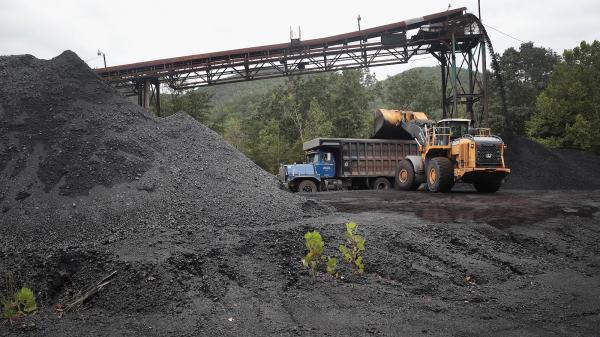-
By Partner EditorialJul 16, 2019, 8:48 am2.4k ptsInsanely Great Special Content
Special ContentRecord fines are being handed out by authorities in Great Britain, as the companies responsible for providing drinking water through home supplies to consumers continue to fail to adhere to basic standards. The news comes after a number of companies appear to have failed to adhere to warnings issued in 2017 after 52 incidents of serious pollution within the country; despite disciplinary action being taken, that number rose to 56 last year.
The country's Environmental Agency has now stepped in to issue final warnings to a number of the companies who have been deemed as having low standards and substandard safety procedures, backed up by fines for the worst offenders. The company taking the brunt of the action is Southern Water, which is being prosecuted for serious failures, as well as facing a fine of £126m for severe issues noted within sewage treatment centers operated by the company.
Among the appalling list of offenses the company has been accused of are dumping raw sewage and effluence into streams, and misreporting data. As well as deliberately misrepresenting data, Southern Water stand accused of treating and manipulating samples of water provided to the Environment Agency for several years, thereby giving the impression that the standard of water at their treatment centers was of an acceptable standard. They're also believed to have deliberately under-invested in necessary environmental protection measures recommended to them by the Agency. Such is the gravity of their case that the company may be ordered to cease operations completely if dramatic improvements aren't made in the near future.

On a separate note regarding the same company, Southern Water were separately criticized by the British pensions regulator in December 2018 after cutting contributions to pensions for employees by 50% at the same time as approving a package of £190m in returns to stakeholders and investors during the same period, for which it apologized. It was previously fined £20m in 2008 for data misreporting offenses. All of this taken together begs the question of how much longer the company can be permitted to supply such a vital service to British consumers.
One of the main issues facing water customers in the UK is that they have no say over who supplies their water. Due to the logistics of where pipes are laid, and where supplies are drawn from, customers can't choose to cease using one company and start accepting water from another instead; they're at the mercy of geography. Their regional supplier is the only option they have, regardless of how uncompetitive their prices are in relation to prices charged by companies elsewhere in the country, or how poorly their water company performs. Those served by Southern Water are forced to continue using water supplied by the company, despite knowing the charges levied against it.
Singling Southern Water out for criticism, even though the accusations made against them are heinous, would be unfair. Statistics and surveys performed by the Environment Agency indicate that while they may have set the low mark, they're not necessarily performing much worse than companies in other regions. Of the nine suppliers currently trading, only one has been ranked with the maximum mark of four stars out of four - and that's Northumbrian Water, who have made improvements after being issued with a fine of £1.1m for failures of their own in previous years.
The political response in the country has been one of anger. Although much of the domestic news agenda is currently given over to the ongoing saga of Brexit, such are the severity of the charges against Southern Water that they've made national news and put pressure on ministers to respond. The current Environment Secretary in the country is Michael Gove, who confirmed that he had read the report in full, and stated that the firms who have failed to achieve the four-star rating have therefore failed to protect waterways from damaging pollution and the potential effects of climate change.
Without effective control over how water is processed, and how sewage is cleaned, customers are gambling with their health every time they turn on the tap, just as the failing suppliers are gambling with their impact on the climate. Allowing chemicals to seep into the water - and therefore into the land - is akin to playing online slots at Rose Slots with the health of both people and the environment. The majority of the time when you spin the reels on an online slot, the symbols won't line up, and nothing will happen. On a successful spin, though, the symbols will line up in sequence, and the customer playing the slot will receive a payout. In respect of the water companies, all the 'symbols' are harmful chemicals and waste, and when they line up in a dangerous order, the payout is a jackpot prize that nobody wants to win. More to the point, the responsibility of supplying water to the nation's people is not a game, much as the suppliers seem to wish to treat it like one by avoiding or ignoring their environmental obligations.

Of the companies criticized in the report not yet fined, most have spoken of 'progress being made' and 'work underway' on necessary improvements. One in particular, Wessex Water, was keen to shift the blame away from themselves and onto the customers they supply. Their spokesperson said that 35% of all the pollution offenses they were found liable for were the result of customers' misusing' their pipes by flushing away items that ought not to be disposed of down plugholes or toilets. Particular offenders are understood to be cooking fat disposed of through sinks, and wet wipes and sanitary products flushed away in toilets. While there may be truth in the statement, no information was issued concerning who or what was responsible for the remaining 65% of reported incidents.
A more conciliatory tone was struck by a spokesperson for Yorkshire Water, who accepted full responsibility for the increase in serious pollution incidents recorded against them, and confirmed that corrective action had already been taken. According to the company's internal figures, pollution incidents are down more than a third in the first six months of 2019 when compared against the equivalent period of 2018.
So long as the performance of Britain's privatized water companies continues to be so dire, and the companies continue to deliver significant profits to shareholders instead of investing in environmental protections, arguments within the country in favor of re-nationalizing the industry seem likely to continue.
Trending Today on EcoTopical
Leaf through planet Earths environmental headlines in one convenient place. Read, share and discover the latest on ecology, science and green living from the web's most popular sites.













